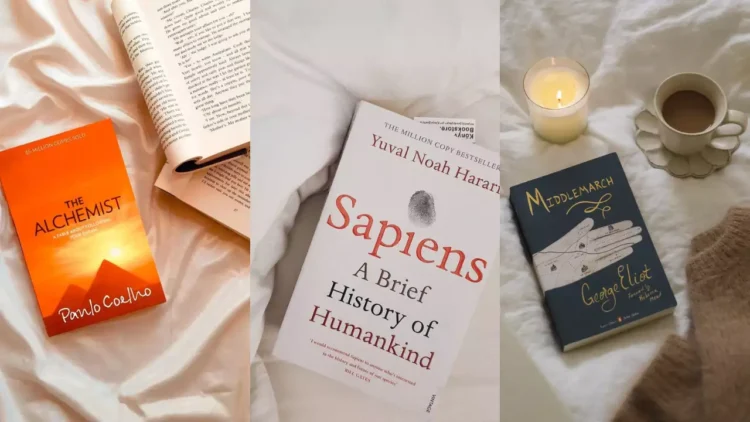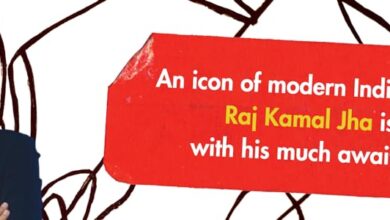Best Books for Everyone to Read on World Book and Copyright Day 2024
The rights of writers and publishers, as well as reading and literature, are celebrated on World Book and Copyright Day. Here is a selection of 15 must-read novels that cover a wide range of genres, ages, and countries to appeal to all kinds of readers in honor of this momentous day. This collection offers everything you could possibly want, whether you’re searching for thought-provoking current tales, timeless literary masterpieces, or inspirational life lessons.

1. Harper Lee’s To Kill a Mockingbird
Through Scout Finch’s naive eyes, Harper Lee’s Pulitzer Prize-winning classic “To Kill a Mockingbird” explores the terrible reality of racial injustice in the American South. With piercing clarity and emotional depth, the story tackles issues of morality, justice, and the loss of innocence as her father, lawyer Atticus Finch, defends a black man wrongfully convicted of a serious crime.
2. George Orwell’s 1984
In Orwell’s novel “1984,” an oppressive government that utilizes censorship, propaganda, and monitoring to keep its people under control is horrifyingly depicted. The protagonist, Winston Smith, battles the state’s oppressive power in a world where the government rewrites history and crushes individuality, inspiring readers to reflect on the importance of freedom and truth in their own lives.
3. Jane Austen’s Pride and Prejudice
Through the love entanglements of Elizabeth Bennet and Mr. Darcy, Jane Austen’s ‘Pride and Prejudice’ masterfully conveys the social expectations and marriage goals of the early 19th century. Austen analyzes the social structure of her day with a sharp eye for sarcasm, offering insightful remarks on character, wealth, and class that are still pertinent today.
4. F. Scott Fitzgerald’s The Great Gatsby
‘The Great Gatsby’ explores the beautiful and tragic life of Jay Gatsby and his fascination with Daisy Buchanan, set in the wealthy roaring 20s. Fitzgerald offers a compelling examination of the American identity in the Jazz Age by examining issues of decadence, idealism, resistance to change, and social upheaval in his incisive criticism of the American Dream.
5. J.D. Salinger’s The Catcher in the Rye
The poignant story of teenage anguish and alienation contained in J.D. Salinger’s “The Catcher in the Rye” embodies the adolescent experience. Readers who have ever felt out of place in society will be able to relate to Holden Caulfield’s voyage through New York City and his search for purity in a corrupted world.
6. Paulo Coelho’s book The Alchemist
In Paulo Coelho’s philosophical novel “The Alchemist,” the young shepherd Santiago is followed on his search for material wealth, only to encounter a deeper, inward spiritual journey. This straightforward but meaningful story inspires readers to follow their aspirations while maintaining a connection to their spiritual core. Themes of destiny, dreams, and the interconnectivity of nature are prevalent throughout.
7. A tribute to Toni Morrison
Set after the American Civil War, Toni Morrison’s “Beloved” is a powerful story about the psychological wounds caused by slavery. The protagonist of the tale is Sethe, an escaped slave who has ghostly visions of her deceased child. Morrison tackles the harsh effects of slavery in a narrative about pain, memory, and the quest for identity.
8. Gabriel García Márquez’s One Hundred Years of Solitude
‘One Hundred Years of Solitude’ by Gabriel García Márquez is a groundbreaking story that follows the Buendía family across seven generations. Through the use of magical realism, Márquez creates a tale that bends time, memory, and reality as he explores Latin American history and the human condition.
9. Dostoevsky’s The Brothers Karamazov
The last book written by Fyodor Dostoevsky, “The Brothers Karamazov,” is a complex philosophical debate centered on the death of their father and the tale of four brothers. Dostoevsky explores the presence of God, the essence of free will, and the complexity of human motivations through the lives of his characters as they wrestle with morality, faith, and doubt.
10. Yuval Noah Harari’s Sapiens: A Brief History of Humankind
Yuval Noah ‘Sapiens’ by Yuval Noah Harari deconstructs the key events in human history from the origin of Homo sapiens to the present. Harari investigates how mythologies, ideologies, and technical advancements have created modern society and the world we live in, raising concerns about what makes humans unique from other animals.
11. Yann Martel’s Life of Pi
The incredible survival tale of Pi Patel, who finds himself trapped on a lifeboat in the Pacific Ocean with a Bengal tiger, is told in Yann Martel’s book “Life of Pi.” The book is a reflection on religion, faith, and the innate need to live, all encapsulated in a story that begs many philosophical and symbolical issues.
Mary Shelley’s Frankenstein, number 12
‘Frankenstein’ by Mary Shelley examines the consequences of man’s search for scientific knowledge and creativity. The sad tale of Victor Frankenstein, who develops a “monster” that eventually leads to his destruction, is told in this Gothic book. Shelley’s story explores issues of ethics, compassion, and ambition while raising ethical concerns about the boundaries of science.
13. Ralph Ellison’s Invisible Man
‘Invisible Man’ by Ralph Ellison is a compelling examination of race and identity in the United States. The journey of an African American guy whose color makes him invisible to society is chronicled in the book. The social and psychological facets of racial relations as well as the quest for identity in a racially divided society are examined in this very introspective study.
14. George Eliot’s Middlemarch
‘Middlemarch’ by George Eliot is an incredibly thorough examination of rural life in 19th-century England. The book explores the goals, passions, and lifestyles of a diverse group of people, offering a comprehensive look at human endeavor. Eliot’s work is a mainstay of literary realism because it blends social criticism with psychological understanding.
15. Stephen Hawking’s A Brief History of Time
‘A Brief History of Time’ by Stephen Hawking simplifies intricate ideas of the world so that even non-scientists may understand them. This groundbreaking study offers a concise and understandable summary of contemporary physics and cosmology by addressing the composition, beginning, evolution, and ultimate destiny of the universe.
These 15 books provide a variety of experiences and ideas that might deepen your knowledge of the world and yourself as we commemorate World Book Day in 2024. There is something on this list for everyone, regardless of whether you are attracted to the thoughtful investigation of human behavior, the fantastical flights of imagination, or the sobering critiques of science and history. Enjoy your reading!







